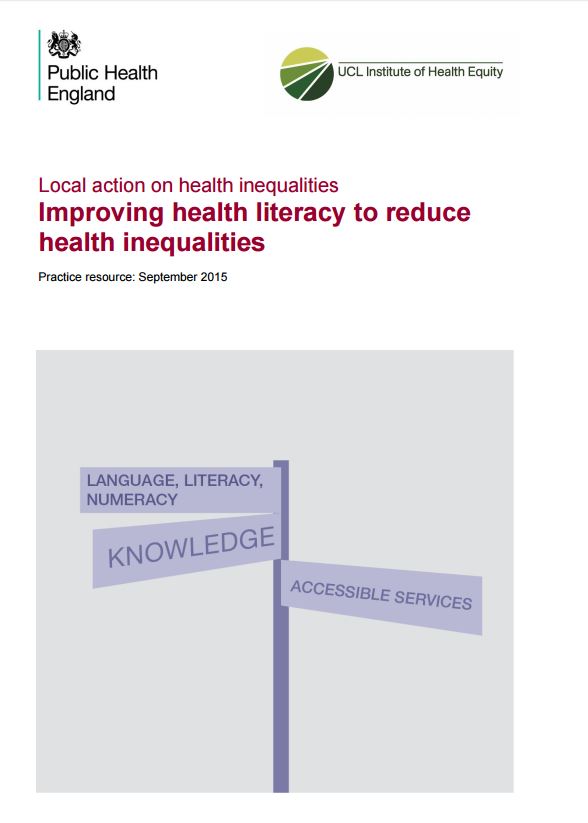
Local Action on Health Inequalities: Improving Health Literacy to Reduce Health Inequalities
These reports commissioned by Public Health England are intended to help:
- local authorities
- health and wellbeing boards
- and health and social care professionals
- when devising local programmes and strategies to reduce health inequalities.
Literacy is the ability to read, write, speak and listen to a level that enables a person to communicate effectively, understand written information and participate fully in society. Health literacy is people having the skills (language, literacy and numeracy), knowledge, understanding and confidence to access, understand, evaluate, use and navigate health and social care information and services.
The social and economic impacts of limited health literacy are considerable. Limited (functional) health literacy independently predicts poor diet, smoking and a lack of physical activity, and is associated with an increased risk of morbidity and premature death in older adults even when age, socioeconomic position, cognitive function and pre-existing illness are accounted for.
- strategies to improve health literacy are important empowerment tools which have the potential to reduce health inequalities. Further research, however, is needed to determine:
- whether improving the health literacy of disadvantaged or vulnerable groups and health and social care services can positively affect health outcomes over time
- how best to improve the health literacy of disadvantaged or vulnerable groups, and health and social care systems
- the cost effectiveness of health literacy initiatives
